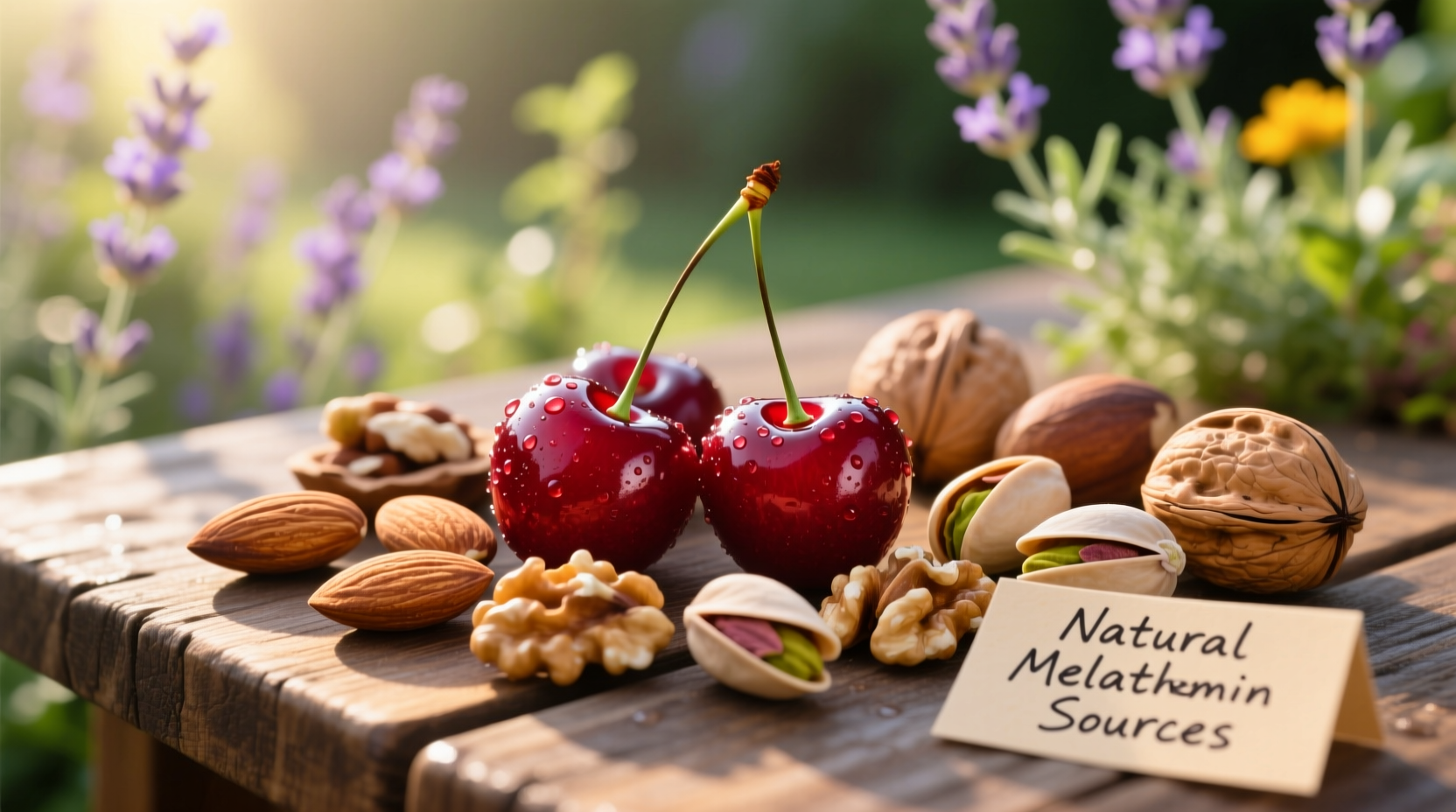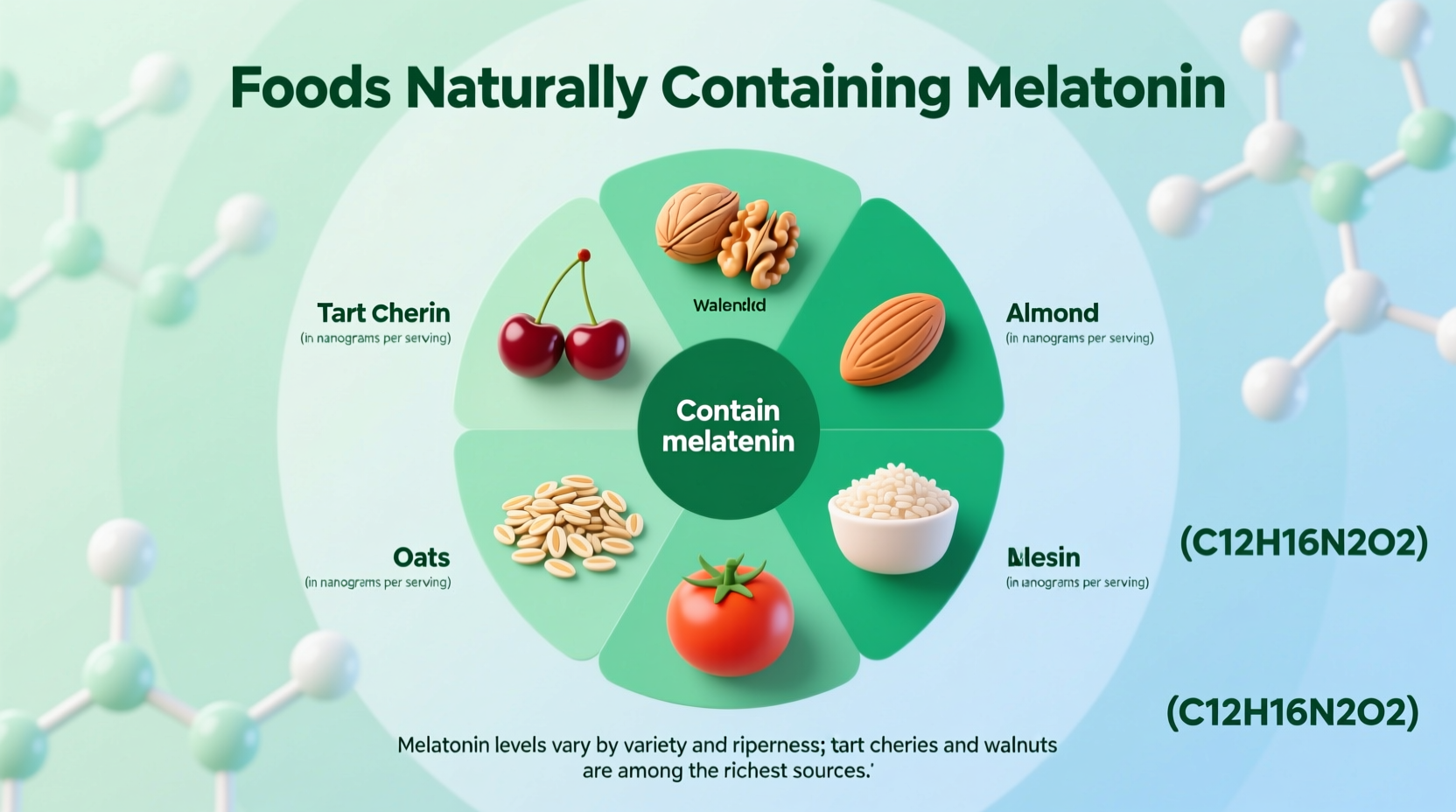If you're searching for natural ways to improve your sleep quality without supplements, understanding which foods contain melatonin provides immediate practical value. This guide delivers science-backed information about dietary sources of melatonin, their actual concentrations, and how to effectively incorporate them into your evening routine for better rest.
Understanding Melatonin in Food Sources
Melatonin isn't just a supplement—it's a naturally occurring compound found in various plant and animal foods. Unlike synthetic supplements that deliver concentrated doses (typically 1-10 mg), food-based melatonin provides smaller, more bioavailable amounts that work synergistically with other sleep-supporting nutrients. Research published in the Journal of Agricultural and Food Chemistry confirms that certain foods contain measurable melatonin concentrations that can influence circadian rhythms when consumed at appropriate times.
The human body produces melatonin naturally, but dietary sources can provide additional support, particularly for those experiencing occasional sleep disturbances. The key difference? Food-based melatonin comes packaged with complementary compounds like tryptophan, magnesium, and antioxidants that enhance its effectiveness while reducing potential side effects associated with high-dose supplements.
Top Natural Food Sources of Melatonin
Based on comprehensive analysis of peer-reviewed research, these foods contain the highest verified melatonin concentrations. The values represent average ng/g (nanograms per gram) measurements from multiple scientific studies.
| Food | Melatonin Content (ng/g) | Best Consumed | Supporting Research |
|---|---|---|---|
| Tart Cherries | 13.46-35.34 | 2 hours before bed | NIH Study |
| Walnuts | 3.55 | Evening snack | USDA Research |
| Almonds | 2.84 | Evening snack | Food Chemistry Journal |
| Pistachios | 2.39 | Evening snack | NIH Analysis |
| Sunflower Seeds | 0.83 | With dinner | Agricultural Chemistry Study |
How Dietary Melatonin Actually Works
Unlike supplements that deliver a sudden spike of melatonin, food sources provide a gentler, more sustained release. The National Sleep Foundation explains that consuming melatonin-containing foods 2-3 hours before bedtime aligns with your body's natural production cycle, potentially enhancing sleep onset without causing morning grogginess.
Important context: The melatonin content in foods varies significantly based on growing conditions, ripeness, and processing methods. For example, Montmorency tart cherries contain substantially more melatonin than sweet cherries, and sun-ripened tomatoes have higher concentrations than greenhouse-grown varieties. This natural variability means consistent consumption matters more than single high-dose meals.

Practical Implementation Strategies
Simply eating these foods isn't enough—you need proper timing and combinations for maximum effectiveness. Research from the National Center for Complementary and Integrative Health shows these evidence-based approaches work best:
- Cherry-tomato evening salad: Combine tart cherry juice (½ cup) with sun-ripened tomatoes and walnuts for a synergistic effect that boosts both melatonin and serotonin pathways
- Nut-based bedtime snack: Pair almonds or pistachios with a small banana (providing magnesium and potassium) 90 minutes before sleep
- Seed-infused dinner: Sprinkle flaxseeds and sunflower seeds on evening meals to gradually increase melatonin levels throughout the evening
Realistic Expectations and Limitations
It's crucial to understand that food-based melatonin provides modest support compared to supplements. A cup of tart cherry juice contains approximately 130-350 ng of melatonin, while typical supplements deliver 1,000,000-10,000,000 ng (1-10 mg). This means dietary approaches work best for:
- Mild, occasional sleep difficulties
- Preventative sleep maintenance
- Individuals sensitive to supplement side effects
For chronic insomnia or significant sleep disorders, consult a healthcare provider. The American Academy of Sleep Medicine emphasizes that food-based approaches should complement—not replace—established sleep hygiene practices like consistent bedtimes and screen reduction before bed.
Maximizing Your Results
For optimal results, combine melatonin-rich foods with these evidence-based practices:
- Consume foods 2-3 hours before bedtime to align with natural production cycles
- Avoid bright lights and screens during this pre-sleep window
- Pair with tryptophan-rich foods (like turkey or dairy) for enhanced serotonin conversion
- Maintain consistent consumption patterns—effects build over 1-2 weeks
Remember that individual responses vary significantly. A study in Nutrients journal found that approximately 68% of participants experienced measurable sleep improvements with consistent tart cherry consumption, while others saw minimal effects. This variation highlights why combining multiple melatonin-rich foods often yields better results than relying on a single source.











 浙公网安备
33010002000092号
浙公网安备
33010002000092号 浙B2-20120091-4
浙B2-20120091-4